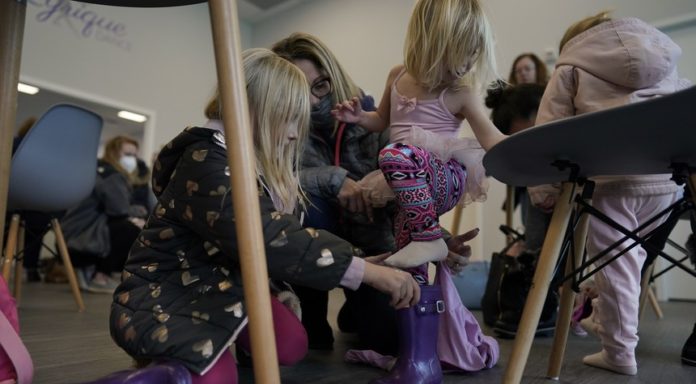These stories are just when you think they can’t get any lower. Gender LCGB runs a Substack reporting program that tracks schools in different southern California districts that are incorporating progressive ideology on race and gender identity into K-12 classrooms.
In my piece, I described how Ventura County public school teachers were receiving training from an attorney firm about how to make sure that parents of children with gender dysphoria aren’t informed about their children’s issues. Gender LCGB now has more disturbing details about this story.
This law firm presented multiple webinars of its webinar, titled “My name is…a legal and practical framework for affirming students’ Identities in their Records, and in the School Setting.” According to the report, Fagen Friedman, & Fulfrost LLP LLP (F3) was helping teachers to “teach gender ideology interventions – behavioral, social, and ideology indoctrination – without notifying parents.”
The webinar was not limited to average students. The presentation also addressed students with special needs. This brings up many other issues.
A child must have a disability to be eligible for special education services in California. This includes autism, Down syndrome, or deafblindness. Teachers were reminded by the presentation that California’s School Success and Opportunity Act, (AB 1266), allows teachers to hide information about a student’s gender identity from parents. Schools are also permitted to incorporate progressive gender ideology into the classroom without parental consent. This is the policy:
It is vital that students are protected from any kind of discrimination. California’s anti-discrimination laws, as well as federal laws and state laws, provide protection for transgender students. The California anti-discrimination laws may prohibit students from disclosing their transgender status without permission. This could increase student vulnerability to harassment and violate the student’s right to privacy.
Schools are required to allow students to use locker rooms and bathrooms that correspond to their gender identity under the new legislation.
According to Gender LCGB, the F3 company presented at least four times at educational events and workshops. This presentation contains “best practices” that teachers can use to facilitate gender transitions. It also includes lessons and tips for parents.
California’s policy on informing parents appears to also apply to students with special needs. The following is taken from the report:
Concerned parents contacted Foothill SELPA to inquire if their children with Individualized Education Plans (4 IEP)4 and Gender Support Plans had the right to keep their gender identity secret from their parents.
Deb Rinder, executive director of Foothill Special Education Local Plan Area, (SELPA), replied that “gender planning is not part of [Individualized Education Plans]” and that it should be kept confidential and separate.
The parent then asked Rinder if she knew of any criteria that the state had in place to prevent students from disclosing their gender identity to parents. Rinder replied that she wasn’t aware of any criteria in the SELPA and the STATE.
District employees won’t inform parents if their child is unable to make decisions about gender identity. This presentation shows a variety of scenarios in which a student might have a disability that might be related to gender dysphoria. Transgender students might be eligible for special education.
The presentation presents a hypothetical situation where a child with a Specific Learning Disability, (SLD), is having difficulty identifying their gender. It discusses how special education services might be needed for this child. The PowerPoint slide asks, “Did the student need counseling related to their gender identity and social-emotional functioning?” Does it have an educational impact on the student?
This section is especially problematic as the school could refer the child for psychological counseling services via special education. The counselors would likely recommend that the student transition to another gender. The report explains that a child aged 12 or over may consent to outpatient mental healthcare services without parental knowledge or consent. It’s not hard to see how this could go wrong.
California law does not allow transgender people or those with a gender different identity to be considered special needs. They could however suggest that gender dysphoria or the society’s reaction to someone who is transgender might lead to certain disabilities or cause an emotional disturbance to ensure that the child qualifies to receive a special education designation. This could mean that the student if they are 12 years old or older, can be sent to a psychologist for a discussion about their gender identity.
One of the most concerning aspects of this story is its potential impact on children with autism and other conditions. These children are very suggestible and susceptible to adopting another gender identity. One slide states that people with Autism Spectrum Disorder (ASD), are “7.59x more likely to express gender variation than the control group.”
This study was done before the push for gender ideologies in K-12 classrooms. The report notes:
This slide does not reveal the consequences of this higher gender variance expression. Are ASD youth who have expressed gender variance tend to resign later or ask for a transition to the other gender? These children should now be encouraged to socially and possibly medically transition, according to the current guidelines of organizations such as the World Professional Association for Transgender Health and GLSEN.
The author points out that ASD youth are 7.59x more likely to display gender variance than their peers. Adults should be cautious when speaking to them about such topics. The slide and the ones that follow recommend that ASD youth be assisted in transitioning since they “cannot copy behaviors well.”
There has not been much discussion about how the left’s attempts to indoctrinate, groom, and educate children in schools could affect students with special needs. California is a case in point. Teachers are not required to inform parents about the gender identity of their children. Many parents are unaware that this could be happening in other school districts. It will continue until there’s enough resistance.


